Are Skittles Halal? An In-Depth Look at the Popular Candy
Skittles, the colorful and fruity candy that promises a “taste of the rainbow,” is enjoyed by millions around the world. However, many individuals who adhere to Islamic dietary laws ask: Are Skittles halal?
In this article, we will explore Skittles’ ingredients, examine the manufacturing processes, and consult authoritative sources to determine whether they can be enjoyed by those following a halal diet.
QUICK ANSWER: HALAL-CERTIFIED SKITTLES ARE HALAL.
Ingredients Used in Skittles:
To find the answer to the question, Are Skittles Halal? It is essential to look closely at the ingredients used in their production. Here’s a breakdown of the common ingredients found in Skittles:
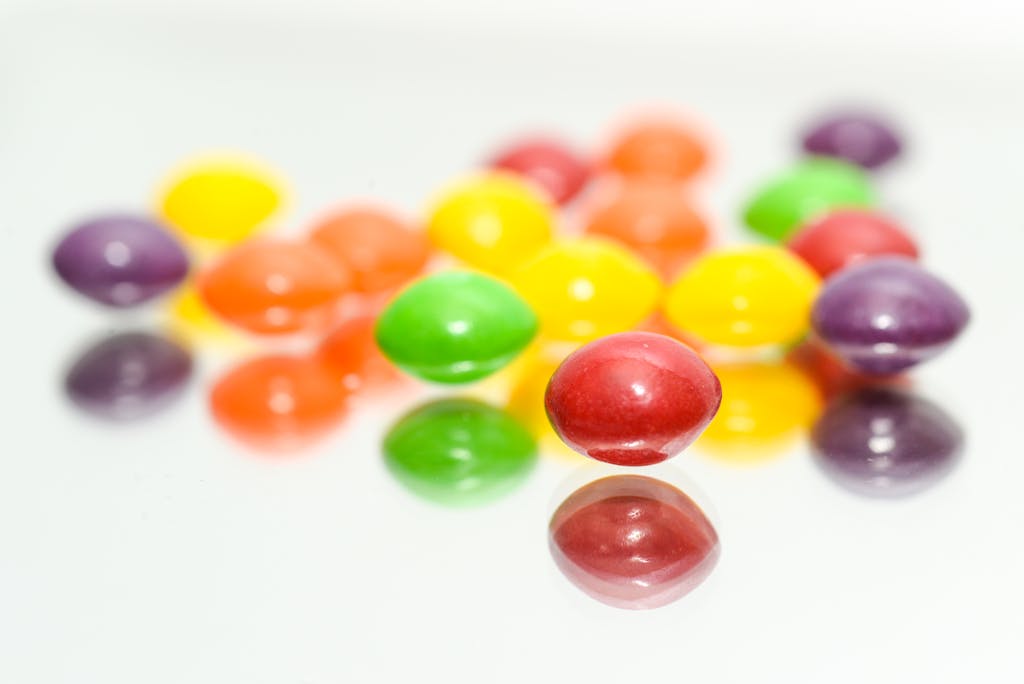
- Sugar: A primary ingredient in Skittles, providing a sweet taste.
- Corn Syrup: Used to add sweetness and help maintain the candy’s chewy texture.
- Hydrogenated Palm Kernel Oil: A type of fat used to give Skittles their distinctive texture.
- Citric Acid: Adds a tangy flavor to the candy.
- Tapioca Dextrin: A type of starch used as a thickener and to prevent the candy from sticking together.
- Modified Corn Starch: Used to improve texture and stability.
- Natural and Artificial Flavors: Provides the distinctive fruit flavors of Skittles. These flavors can be derived from both plant and animal sources, and their halal status depends on the specific sources used.
- Colours: Skittles are known for their bright colours, achieved through a mix of artificial colorings like:
- Red 40 (Allura Red)
- Yellow 5 (Tartrazine)
- Yellow 6 (Sunset Yellow FCF)
- Blue 1 (Brilliant Blue FCF)
- Blue 2 (Indigo Carmine)
- Titanium Dioxide (for white color)
- Sodium Citrate: Used as a preservative and to add tartness.
- Carnauba Wax: A plant-based wax used to give Skittles their shiny coating.
Considerations for Halal Status
- Gelatin: Traditional gelatin, often derived from pork or non-halal sources, is not used in Skittles, which is a positive aspect for halal consideration.
- Colorings: The source of colorings is crucial. While many artificial colorings are considered halal, some may have been tested or processed using non-halal methods.
- Natural and Artificial Flavors: The halal status of these flavors depends on their sources. Companies may use both plant and animal-derived ingredients, and this can affect the overall halal status of the product.
- Manufacturing Process: Cross-contamination during the manufacturing process with non-halal substances is another critical factor.
Manufacturing Process Of Skittles:
By examining these ingredients and the manufacturing process, we can better determine whether Skittles meets the criteria for being halal. It is also beneficial to look for certification from reliable halal certifying bodies to ensure that the product is indeed permissible for those following a halal diet.
Halal Certifications:

Skittles in various regions have undergone changes to align more closely with halal dietary guidelines, particularly by removing gelatin from their ingredients. However, the presence of a formal halal certification can vary depending on the country and the specific production batch.
In some countries, Skittles has been certified halal by recognized halal certification bodies, ensuring that they meet all the necessary dietary regulations for Muslim consumers. Consumers should check the packaging for a halal certification logo or consult the manufacturer’s website or customer service to confirm the certification status of Skittles in their specific region.
Given the potential for differences in production and ingredient sourcing, it is advisable for those seeking halal-certified products to always verify the latest information from reliable sources or certification bodies.
How to Identify Halal and Non-Halal Skittles
| Halal Skittles | Non-Halal Skittles |
| Certified by recognized halal certification bodies. | May not be certified by halal certification bodies. |
| Ingredients sourced from halal-certified suppliers. | Ingredients may include non-halal substances like gelatin from non-halal sources (e.g., pork). |
| No alcohol-based flavors or additives. | It may contain gelatin derived from non-halal sources (e.g., pork). |
| No cross-contamination with non-halal products during manufacturing. | Risk of cross-contamination with non-halal substances during production. |
| No pork-derived ingredients such as gelatin. | It may not be certified by halal certification bodies. |
| Use of halal-certified colors and flavorings. | Colors and flavorings may not be halal-certified. |
| The manufacturing process may not adhere to halal standards. | It may contain alcohol-based flavors or additives. |
| Halal-certification logo on packaging where applicable. | Typically lacks a halal-certification logo on packaging. |
Final Thoughts
The question, are skittles halal? revolves around careful scrutiny of their ingredients and manufacturing processes. For those adhering to Islamic dietary laws,
Skittles varieties such as Original, Wild Berry, Sour, and others listed as halal do not contain pork-derived gelatin or alcohol-based additives. Their ingredients, including sugars, natural and artificial flavors, and certified colors, are sourced to comply with halal standards.
By understanding these considerations, consumers can make informed choices aligning with their dietary preferences and religious beliefs when enjoying Skittles and similar confectioneries.
Frequently Asked Questions
Are All Flavours of Skittles Halal?
Not necessarily. Always check the packaging for halal certification.
Are Skittles Halal Certified Worldwide?
The halal certification of Skittles varies by region. For instance, Skittles in the UK and parts of Europe are often halal-certified, while in other regions, it may differ.
How Can I Identify Halal-Certified Skittles?
Look for a halal certification symbol on the packaging. This symbol indicates that the product has been certified by a recognized halal certification body.
Do Skittles Contain Alcohol?
Skittles do not contain alcohol as an ingredient, but verify if flavors involve alcohol in production.

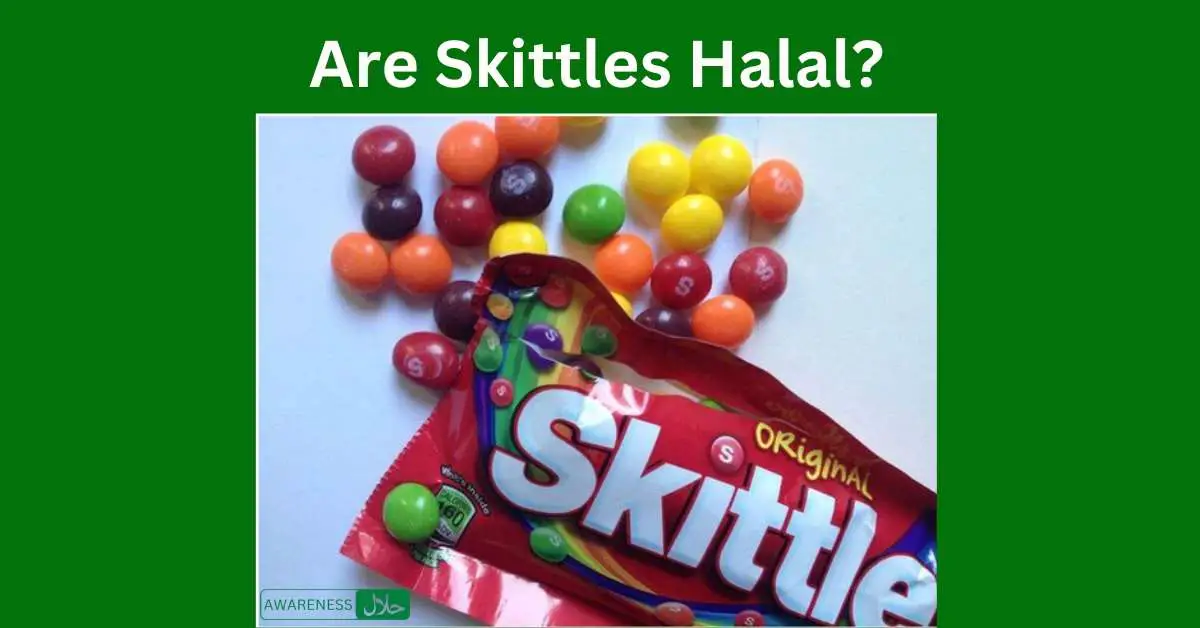



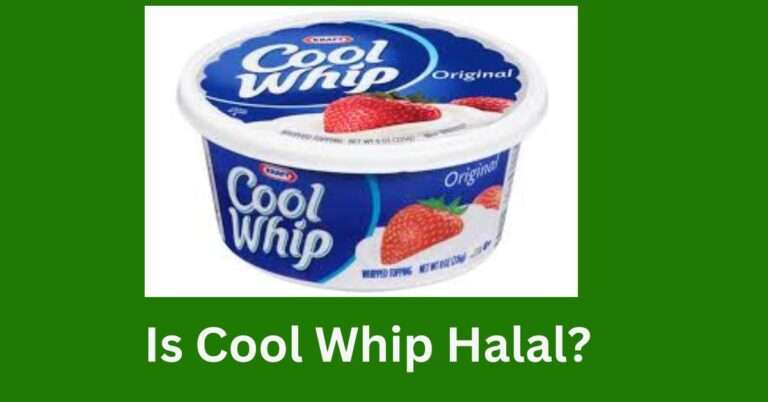
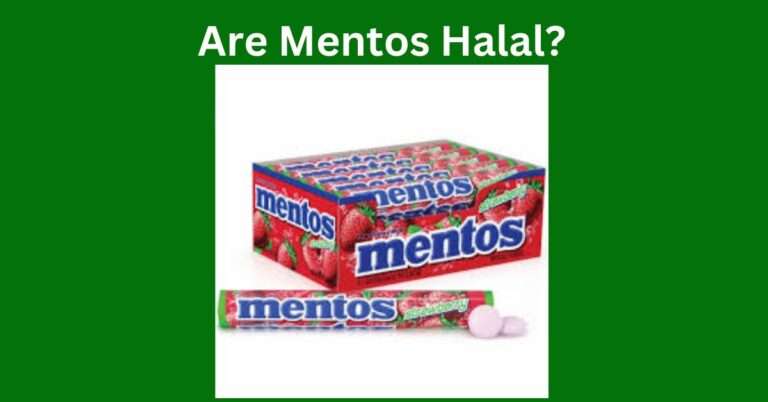
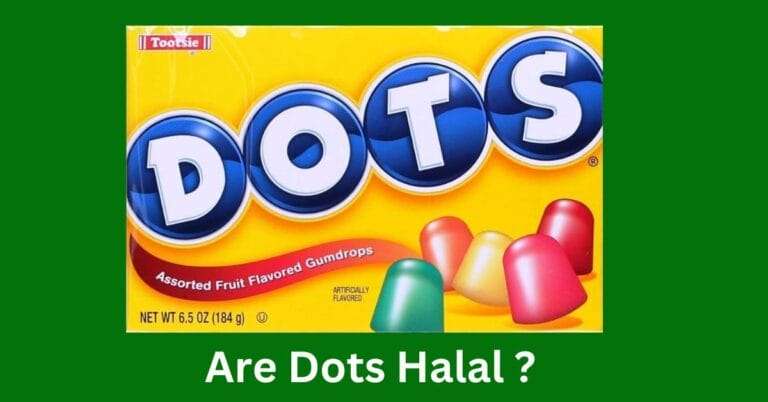
2 Comments